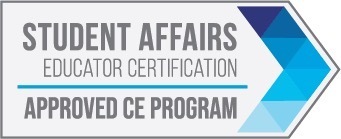
Cultivating Staff Leadership Groups to Catalyze Collaboration
Recorded On: 05/09/2024
- Registration Closed
Miranda Swanson
Associate Dean for Student Services, College of Engineering
Cornell University
Miranda Swanson joined Cornell Engineering in 2017 as Associate Dean for Student Services. Her portfolio includes Engineering Admissions, Engineering Advising, Engineering Career Center, Engineering Learning Initiatives, and the Engineering Registrar, as well as support for Diversity Programs in Engineering. She works with college leadership to prioritize Cornell Engineering’s undergraduate goals, represents the college on university initiatives, and collaborates with partners across Cornell to support student success. Prior to Cornell, Miranda spent 16 years in graduate student affairs at the University of Chicago, most recently serving five years as Dean of Students in the Physical Sciences Division. At UChicago, she also served as a Dean-on-Call, Sexual Assault Dean-on-Call, and Bias Response Team member. Miranda holds a BFA from the University of Nebraska at Omaha and a MA in Humanities from the University of Chicago. From January 2018 to June 2022 she chaired Cornell's University Student Services Leaders (USSL) group.
Liane Fitzgerald
Director of Advising, College of Engineering
Cornell University
Liane Fitzgerald joined Cornell University in 2016 as Director of Engineering Advising. She earned her B.S. in Professional and Technical Communication from Rochester Institute of Technology (RIT) and her M.S. in Academic Advising from Kansas State University. Preceding Cornell Engineering, Liane spent five years as the Manager of Student Services, and seven years prior as a Senior Academic Advisor, both for the Computer Science Department at RIT. From July 2020 to June 2023 she chaired the Professional Academic Advising Leaders (PAAL) group at Cornell. In 2022 her PAAL colleagues nominated her for Cornell University President's Awards for Employee Excellence "Thoughtful Leader Award."
The goals of this webinar are to share two case studies from Cornell University in which existing staff leadership groups were evolved to become more effective platforms for cross-campus collaboration, and challenge participants to consider ways in which they might leverage existing structures or experiment with new ones in order to grow partnerships between academic and student affairs colleagues.
Each of the presenters served as chair of a key staff leadership group during the pandemic and helped expand membership to include student affairs partners from university offices. These standing groups have become a space for important cross-unit conversations, as well as the jumping off point for new collaborations and partnerships. The impact has been an improvement in overall internal communications, better alignment of policies and processes across the institution, mitigation of perceived tensions between academic and student affairs, and a stronger overall sense of community.
Learning Outcomes:
1. Participants will understand the impact of a standing committee/group structure as a platform for partnership and collaboration.
2. Participants will reflect on the case studies to consider ways in which existing structures on their campuses might be leveraged to deepen collaborations and partnerships.
3. Participants will reflect on the case studies to consider ways in which experimenting with new structures on their campuses might fill gaps in communication and/or collaboration between student and academic affairs units.
NASPA has been approved by the Higher Education Consortium for Student Affairs Certification to provide CE credit for Certified Student Affairs Educators (CSAEd). NASPA is solely responsible for all aspects of this program.
Guidelines for earning CE credit:
1 CE is awarded for attending this live session.
No partial credit will be rewarded.
Participants must also complete the feedback survey in the Online Learning Community.
Credit is available for attending the live session and viewing the on-demand recording.
To receive CSAEd credit, attendees must complete the Feedback Survey in the online event offering the certification. Once the survey is completed, your Certificate will be available in the event modules. The Certificate of Completion, which will show the event and credit earnings, is available for download and/or print from the event in your Online Learning Community.
